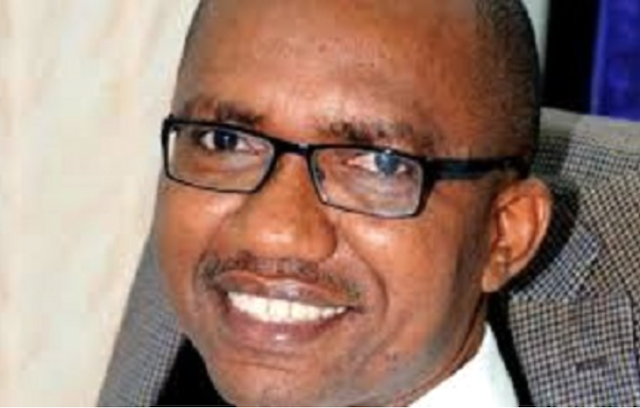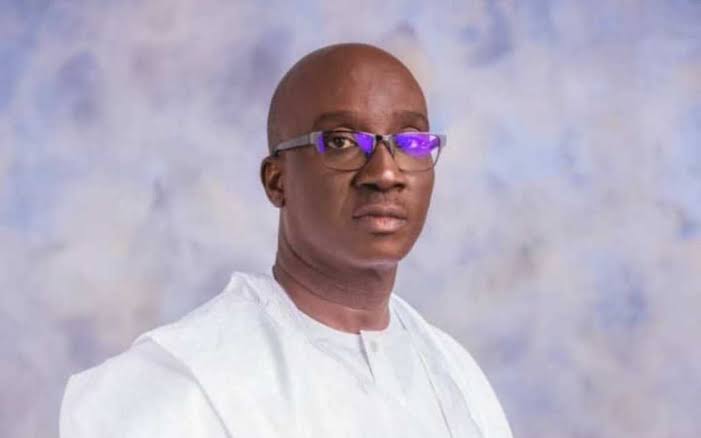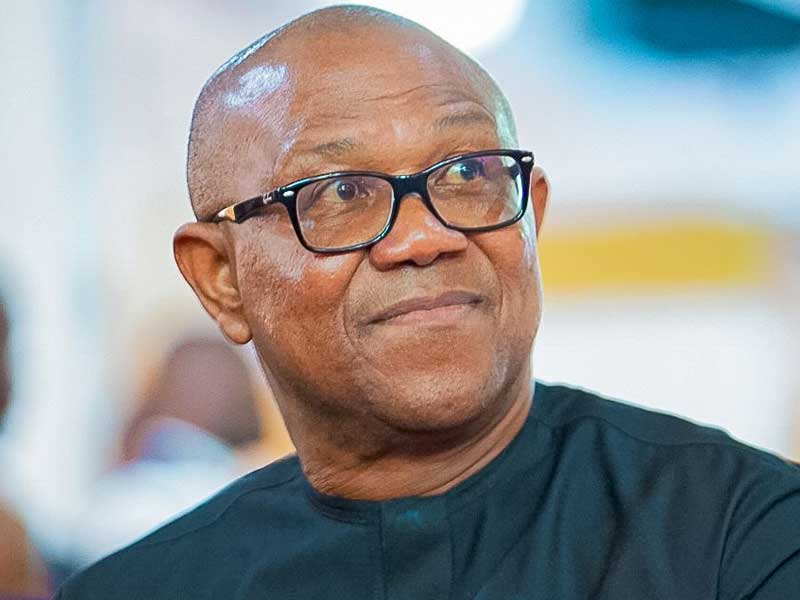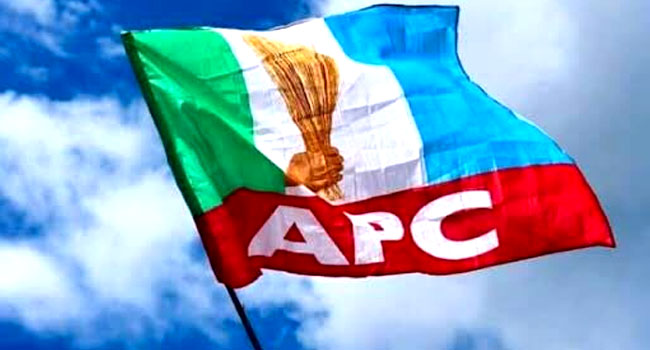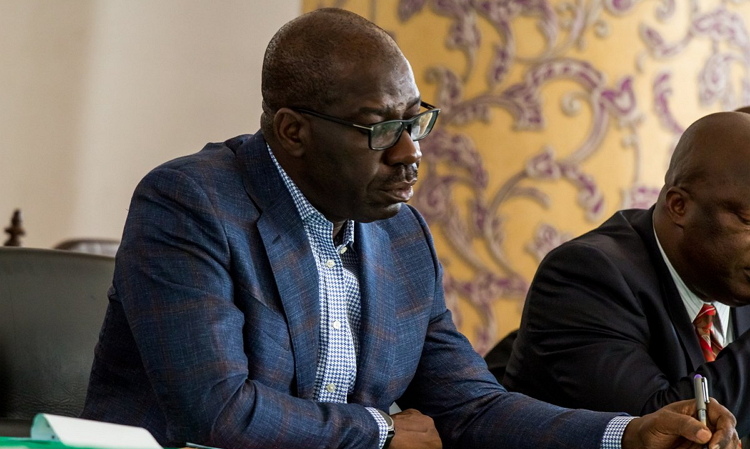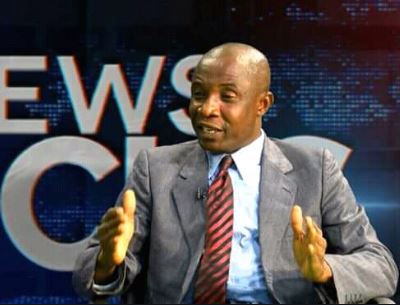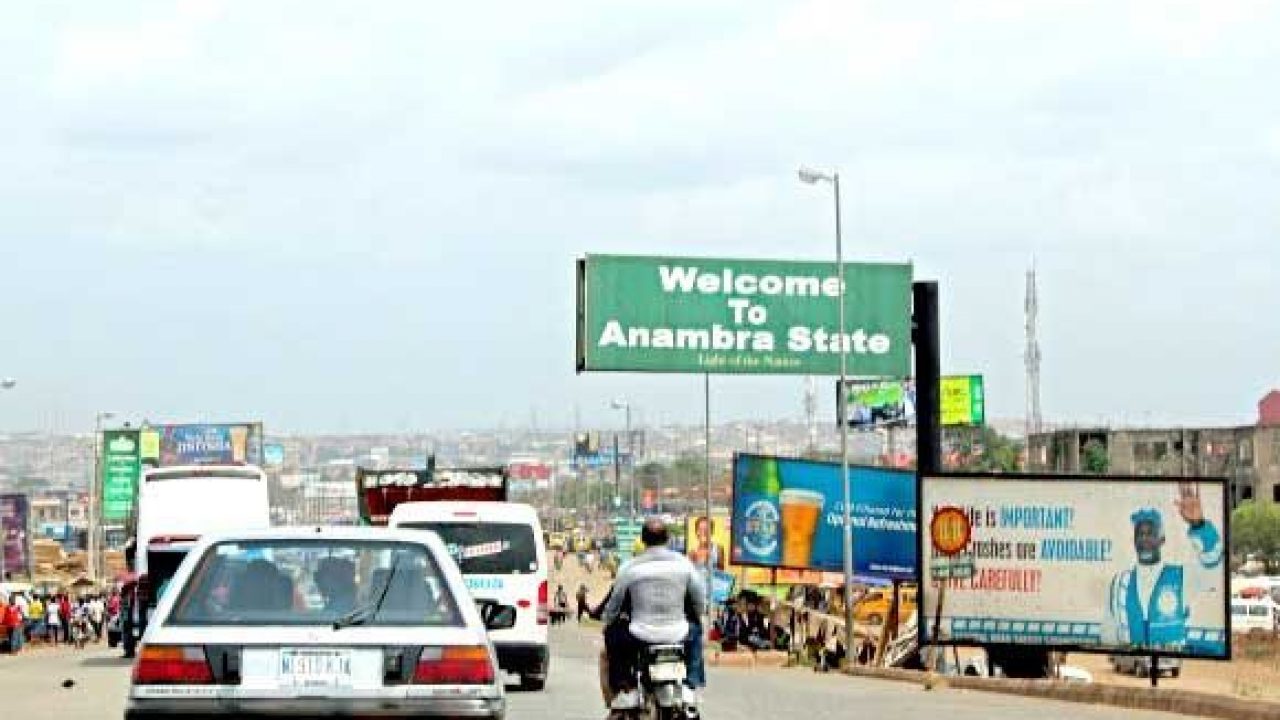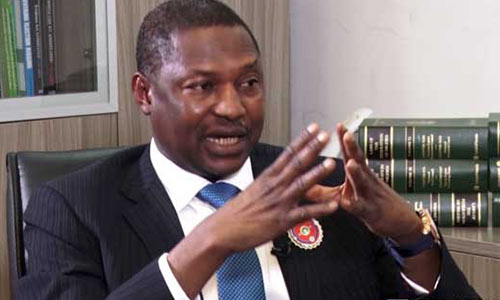By Ehichioya Ezomon
President Muhammadu Buhari may’ve temporarily doused the tension generated by Wednesday, October 6, 2021, threat by the government to proclaim a “state of emergency” in Anambra State.
The Attorney General and Minister of Justice, Abubakar Malami (SAN), threw the obviously discriminatory and politically-motivated proposal amid public expectation of de-escalation of tension nationwide.
According to Anambra Governor Willie Obiano, Buhari isn’t in support of the minister’s bombshell that has sent shockwaves, and elicited condemnation across the country.
The government that should lead peace initiatives appears to stoke unrest with Malami’s outburst that excuses other states in Nigeria that have more serious challenges to law and order.
The strife in the South-East, mainly from agitation for secession of the zone, is nothing compared to the carnage in the North-East, Middle Belt and North-West of Nigeria, where terrorists maraud.
And there’ve never been hints of imposition of a state of emergency in any of the states of Borno, Yobe, Adamawa, Taraba, Benue, Plateau, Katsina, Zamfara, Kaduna, Niger and Sokoto.
So, why the threat in Anambra regarded as the most peaceful in the South-East until lately? Obiano, after a quick visit to Buhari at the Presidential Villa, in Abuja, on Thursday, October 7, thumped his chest in attestation to the prior peace that existed in Anambra.
Short of berating Malami, who broached the plan after Wednesday, October 6, meeting of the Federal Executive Council (FEC), Obiano described insecurity in Anambra as “a flash in the pan” and “a little hiccup.”
He queried Malami’s turn-away from the hotspots “in Kaduna, in Jos, in Imo, in Zamfara” and said, “why is he making that kind of assertion, and we have an election by the corner?”
Likening happenings in Anambra and the North-West and North-East to a case of malaria and cancer that require “different treatments,” Obiano said, “we are not near, in terms of confusion and security challenges, compared to Zamfara and co.”
“Look at what is happening in the North; they kill dozens every day. Because less than 15 people were killed in Anambra in two weeks, is that a reason for somebody to call for a state of emergency? That’s a very unfortunate comment by Malami,” Obiano said.
“In summary, what I’m saying is what is happening in Anambra… crisis and challenges are far from being close to (the) challenges in the North-West and in the North-East, as the case may be.”
Explaining the rationale for weighing an emergency rule in Anambra, Malami focused principally on tightening of security ahead of the November 6, 2021, governorship election in the state.
“His words: “What I’m saying… is that no possibility is ruled out by government in terms of ensuring the sanctity of our democratic order, in terms of ensuring that our elections in Anambra hold.
“And you cannot rule out the possibility of (a) declaration of (a) state of emergency where it is established, in essence, that there’s a failure on the part of the state government to ensure the sanctity of security of lives, properties and democratic order.”
The scenario painted by Malami raises several questions: Absent the poll, will normal security operations suffice in Anambra, as in Abia, Ebonyi, Enugu and Imo, which’ve witnessed reported attacks by a “militia” Eastern Security Network (ESN), allied to the proscribed Indigenous People of Biafra (IPOB), and “unknown gunmen”?
What a state of emergency does the government envisage in Anambra? The brand that displaces Governors and Legislative Assemblies, and imposes Sole Administrators, as executed by Prime Minister Abubakar Tafawa Balewa in the Western Region in May 1962, and President Olusegun Obasanjo in Plateau State in May 2004 and Ekiti State in October 2006?
Or the kind that allows elected organs to remain in place, such as actioned by President Goodluck Jonathan in Borno and Plateau in 2011, and in Adamawa, Borno and Yobe in May 2013?
While the Balewa emergency flowed from the intra-party crisis in the Action Group (AG) in the Western Region, and Obasanjo’s emanated respectively from ethnic and religious violence in Plateau and Kano, and the impeachment of Governor Ayodele Fayose; the Jonathan actions, first in Borno and Plateau, and later in Adamawa, Borno and Yobe were purely to curtail insecurity in the affected states.
The conditions precedent to a proclamation of a state of emergency, which initially lasts for six months, are listed in Part II (Miscellaneous Provisions), section 305(1-6) of the amended 1999 Constitution of Nigeria, but we deal here, paraphrasingly, with subsections (1), (2), (3)(c)(d)(f)(g), (4), (5) and (6)(a)(b)(c)(d).
Section 305(1) states: “Subject to the provisions of this Constitution, the President may, by instrument published in the Official Gazette of the Government of the Federation, issue a Proclamation of a state of emergency in the Federation or any part thereof.”
(2) The President shall transmit copies of the Official Gazette to the President of the Senate and Speaker of the House of Representatives, each of whom shall convene or arrange for a meeting of the House, “to consider the situation and decide whether or not to pass a resolution approving the Proclamation.”
(3) “The President shall have power to issue a Proclamation of a state of emergency only when-
(c) there is actual breakdown of public order and public safety in the Federation or any part thereof to such extent as to require extraordinary measures to restore peace and security;
(d) there is a clear and actual breakdown of public order and public safety in the Federation or any part thereof requiring extraordinary measures to avert such danger;
(f) there is any other public danger which clearly constitutes a threat to the existence of the Federation;
(g) the President receives a request to do so in accordance with the provisions of subsection (4) of this section.”
Subsection (5) says the President shall not issue a proclamation of a state of emergency in any case to which the provisions of subsection (4) applies “unless the Governor fails, within a reasonable time, to make a request to the President to issue such Proclamation.” But has insecurity in Anambra reached the level that the Governor failed to request a state of emergency?
Mr Obiano says no, hence he didn’t ask for, as per subsection (4), “a resolution, supported by two-thirds majority of the House of Assembly, requesting the President to issue a Proclamation of a state of emergency in the State when there is existence within the State any of the situations specified in subsection (3)(c)(d) and (e) of this section and such a situation does not extend beyond the boundaries of the State.”
These conditions for a proclamation of a state of emergency are straight-forward, and unambiguous, harbouring no partisanship, as allegedly displayed by the Balewa and Obasanjo administrations.
Still, there’re more questions to ask, and inferences and implications to draw from government’s attempt at a back-door proclamation of a state of emergency in Anambra. They include:
* Despite the atrocities of Boko Haram in the North-East and North-West, and “bandits” in the North-West and Middle Belt, government hasn’t imposed an emergency in any or all of the states.
* Why in Anambra? Is it a precursor, as critics allege, to a wider application of the rule in the South-East, or any other state or zone where agitation for secession has reared or may rear its head?
* The Malami mooted proposal fits into President Buhari’s declaration to crush any separatist agitation and deal ruthlessly with those stoking and backing such divisive campaign.
* The series of “Operation Python Dance” in the South-East didn’t result in the expected outcome. Will “Operation Golden Dawn” in the area or a state therein guarantee peace?
* Government’s proposal may reecho the Nigerian Civil War (1967-1970), which backgrounds the alleged exclusion, marginalisation, and injustice against the South-East and Igbo in Nigeria.
* An emergency rule in Anambra is a Catch 23 situation, as government can’t deny political motive, to favour the All Progressives Congress (APC) in the November poll, while the beneficiary of such an alleged imposition would lose the mandate and legitimacy of the electorate in Anambra and the entire South-East.
Yet, it’s not late for the government to pull the breaks on Anambra, and reool its strategy of deploying power for the sword rather than the shield, to achieve peace and security in the South-East, and Nigeria.
The administration of President Umaru Musa Yar’Adua had laid the marker in the Niger Delta, when militants were engaged in dialogue, to lay down their arms in exchange for an enduring amnesty programme.
The Buhari administration should follow in the footsteps of the Yar’Adua example in the South-East, and elsewhere, and dialogue with genuine agitators for equity, inclusiveness and justice for all.
Mr. Ezomon, Journalist and Media Consultant, writes from Lagos, Nigeria.

